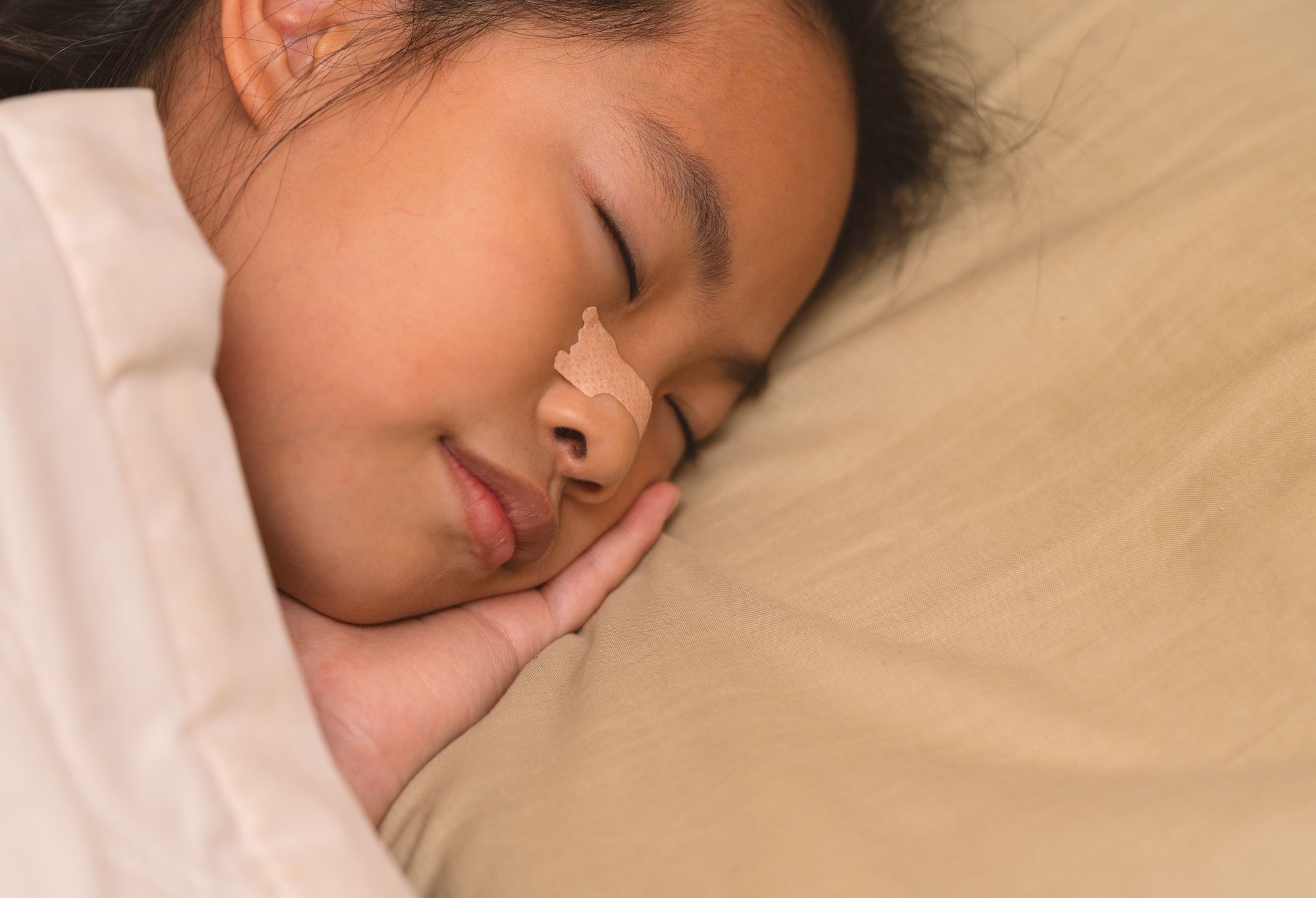Why How You Breathe at Night Matters
Getting a good night’s sleep is one of the most important things you can do for your overall health and well-being. Yet for many people, restful sleep is disturbed by snoring, dry mouth, or frequent waking throughout the night. One often overlooked solution lies in the way you breathe. While it may seem like a small detail, the difference between mouth breathing and Nose breathing while sleeping can have profound effects on your sleep quality and even help reduce or eliminate snoring.
The Science Behind Nose Breathing
Our bodies are designed to breathe through the nose, not the mouth, especially when we sleep. The nose is equipped with tiny hairs and mucous membranes that filter out dust, allergens, and pathogens, making the air you inhale cleaner and more humidified. This is particularly important at night when dry air can irritate your throat and airways. Studies have shown that nose breathing while sleeping allows for better oxygen exchange, helps maintain proper carbon dioxide levels in your blood, and can improve the overall efficiency of your respiratory system.
Nose Breathing and Snoring: What’s the Connection?
Snoring occurs when airflow is partially blocked in the throat, causing tissues to vibrate. Mouth breathing tends to exacerbate this problem by allowing your jaw to drop open and your tongue to fall back, further narrowing your airway. Nose breathing while sleeping helps keep your mouth closed and your tongue positioned properly, reducing the chance of airway obstruction. Many people who switch from mouth to nose breathing notice that their snoring either diminishes significantly or stops altogether.
How Nose Breathing Improves Sleep Quality
When you breathe through your nose at night, your body produces more nitric oxide, a molecule that helps expand blood vessels and improves circulation. This process enhances oxygen delivery throughout your body, which can lead to more restorative sleep. In contrast, mouth breathing can lead to shallow, inefficient breaths and disrupt your natural sleep cycles. Emphasizing nose breathing while sleeping promotes deeper sleep and helps you feel more refreshed and alert in the morning.
The Role of the Circadian Rhythm
Your circadian rhythm regulates your sleep-wake cycle and is influenced by many factors, including light exposure, exercise, and diet. But breathing patterns also play a role. By practicing nose breathing while sleeping, you can support the natural ebb and flow of your circadian rhythm, allowing your body to transition more easily between the stages of sleep. Mouth breathing, on the other hand, often leads to frequent awakenings and fragmented sleep, which can throw your rhythm out of balance.
Common Problems Caused by Mouth Breathing at Night
People who breathe through their mouths while sleeping often wake up with a dry mouth, sore throat, or even bad breath. These are all signs that your body isn’t getting the moisture and filtration it needs. Chronic mouth breathing can also lead to dental problems such as cavities and gum disease, as saliva production decreases at night. By making a conscious effort to adopt nose breathing while sleeping, you can protect your oral health and prevent these unpleasant side effects.
Simple Ways to Encourage Nose Breathing
If you find it difficult to breathe through your nose while sleeping, you’re not alone. Many people experience nasal congestion or have developed habits that favor mouth breathing. Start by addressing any underlying nasal issues such as allergies, deviated septum, or chronic sinus infections. Nasal sprays, saline rinses, and even simple exercises during the day can help open your nasal passages and make nose breathing while sleeping more comfortable.
Mouth Taping: A Helpful Technique
One popular method to train yourself to keep your mouth closed at night is mouth taping. This involves placing a small piece of skin-safe tape over your lips before you go to sleep. It may sound strange, but many people have successfully transitioned to nose breathing while sleeping by using this technique. It’s important to ensure you can breathe freely through your nose before trying mouth taping, so consult with a healthcare professional if you have concerns about nasal blockages.
Long-Term Benefits of Nose Breathing at Night
The advantages of nose breathing while sleeping extend beyond simply reducing snoring. Over time, you may notice improved cardiovascular health, better blood pressure control, reduced risk of sleep apnea, and enhanced athletic performance during the day. Your mental clarity and focus can also improve as your brain receives a steady, high-quality oxygen supply throughout the night.
Final Thoughts: Make Nose Breathing Your Nighttime Habit
If you’ve struggled with snoring, poor sleep, or morning fatigue, consider evaluating your nighttime breathing habits. Shifting to nose breathing while sleeping can transform your sleep experience and set you on the path toward better health. Remember, a good night’s sleep starts with small, intentional habits — and how you breathe is one of the most powerful habits you can change. Focus on creating an environment and routine that supports nasal breathing, and you may find that restful, uninterrupted sleep is closer than you think.










Leave a Reply